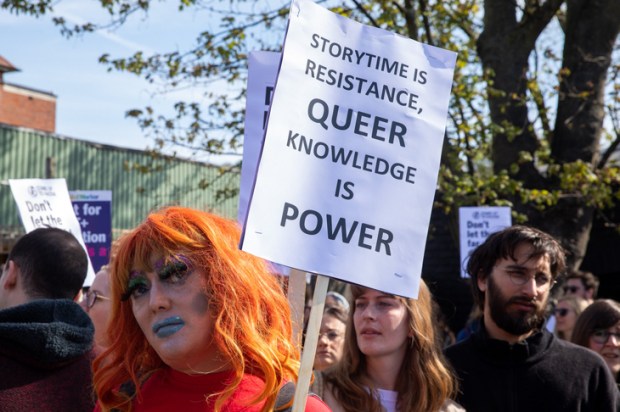With articles on the Voice referendum bombarding our media daily for months, you’d be forgiven for thinking that the only part of the Uluru Statement from the Heart that is progressing is the Voice.
That might be the case federally, but all state jurisdictions except New South Wales are pushing ahead with treaty and truth-telling. Some even have legislation.
In fact, the Queensland parliament is meeting in my home town of Cairns on 9 to 11 May. The Path to Treaty legislation that it introduced to parliament on 22 February will be considered.
It may even pass considering the Premier has sent out private invitations to a treaty breakfast with her on 11 May.
While there have been consultations, it seems to be humming along under the radar of the national, even local, media.
The Interim Truth and Treaty Body (ITTB) co-designed the Path to Treaty Bill. Co-chairs of the ITTB are Cheryl Buchanan, a Guwamu Nation elder and long-time campaigner from south-west Queensland, and former lord mayor of Brisbane, Sallyanne Atkinson.
There is no talk of a Queensland Voice but maybe that will come later. The order would keep Lidia Thorpe happy – treaty and truth-telling first and sovereignty asserted.
While to many it will appear a radical proposition, the Queensland government is holding onto the reins somewhat by making all the appointments to the proposed bodies. No elections or appointments by First Nations bodies are proposed.
However, once appointed, these bodies – the First Nations Treaty Institute and the Truth-telling and Healing Inquiry – will be independent of government. The Institute will receive about $10 million in annual funding.
The Path to Treaty Bill 2023 sets out its aims as follows:
The main purposes of this Act are to –
(a) establish the First Nations Treaty Institute to –
(i) develop and provide a framework for Aboriginal peoples, Torres Strait Islander peoples and the State to enter into treaty negotiations; and
(ii) support Aboriginal peoples and Torres Strait Islander peoples to participate in treaty negotiations; and
(b) provide for the establishment of the Truth-telling and Healing Inquiry to inquire into, and report on, the impacts of colonisation on Aboriginal peoples, Torres Strait Islander peoples and the history of Queensland.
Public forums were held in tandem with the ITTB and the Queensland Community Support and Services Committee, composed of members across party lines to advise the government. The first public inquiry into the Path to Treaty Bill was held in Brisbane on Monday 13 March.
This was followed by a series of public forums in Cairns, Weipa, Thursday Island, Palm Island, Townsville, Longreach, Woorabinda and Rockhampton with the last one in Logan, Brisbane on 17 April.
At the one in Cairns, the Committee took verbal submissions in the morning, and in the afternoon, the ITTB explained the Bill and took questions and comments about it.
The Committee tabled its final report on 21 April, with parliament expected to vote on the matter in its 9 to 11 May meeting. So, things are moving quickly.
The First Nations Treaty Institute would not be a party to treaty negotiations but develop a framework for treaty-making. The staff of the Treaty Institute will be employed under this Act and not the Public Sector Act 2022.
Also, a Treaty Institute Council comprising ten First Nations people would be established as the governing body of the Treaty Institute and they would be similarly appointed.
It is highly likely that more than one treaty will be negotiated and not just because there are two First Nations groups – Aboriginal and Torres Strait Islander.
There are some concerns by native title holders about whether they would have their own treaty with the government or would the city or region they live in have a treaty.
There will be inevitable concerns from some Queenslanders about treaties, possible reparations, and co-sovereignty.
Most First Nations people are likely to see it as justice finally done and steps to recognition and reconciliation. There is no mention of Closing the Gap implications at this stage.
The Truth-Telling and Healing Inquiry will run for at least three years. Five members would make up the inquiry, one being a lawyer and the majority being Indigenous.
There are some circumstances where the inquiry can give a person in a government entity an attendance notice requiring them to attend a truth-telling hearing at a stated time and place. Documents can also be requested.
It is expected that the stories of First Nations people would be incorporated into the Queensland curriculum so that a fuller understanding of Queensland history would be available to school students.
This will be controversial to some who are concerned that history will be rewritten in a way that reflects a black armband or negative view of history and revitalises the history wars.
However, it is legitimate for First Nations people to have access to records recording the lives of their families and communities. A lot will depend on the way these are handled.
Will it progress reconciliation by recognising the positive as well as the negative or will non-Indigenous people feel they are being unfairly made to atone for the actions of their forebears?
And will Indigenous people be re-traumatised telling their own and their families’ stories? Counselling will be provided to help reduce this.
The treaty process will recognise that First Nations people in Queensland assert they have not ceded their sovereignty. Interestingly, the Act does not say the government recognises their sovereignty. The preamble to the Path to Treaty Bill states:
3. The colonisation of Queensland occurred without the consent of Aboriginal peoples and Torres Strait Islander peoples and often against their active resistance.
4. Aboriginal peoples and Torres Strait Islander peoples assert they have never ceded their sovereignty over their lands, seas, waters, air, and resources and they continue to assert their sovereignty.
We are on the cusp of a monumental shift in the history of the state of Queensland which is in the process of being mirrored around our nation. This is just as monumental as the proposed Indigenous Voice to parliament federal referendum that will occur later this year.
Got something to add? Join the discussion and comment below.
Barbara Miller is a best-selling author who brings Australian Indigenous history to life. Her memoir, ‘White Woman Black Heart’ was a finalist in the Qld Literary Awards for A Work of State Significance in 2018. www.barbara-miller-books.com.
You might disagree with half of it, but you’ll enjoy reading all of it. Try your first month for free, then just $2 a week for the remainder of your first year.













